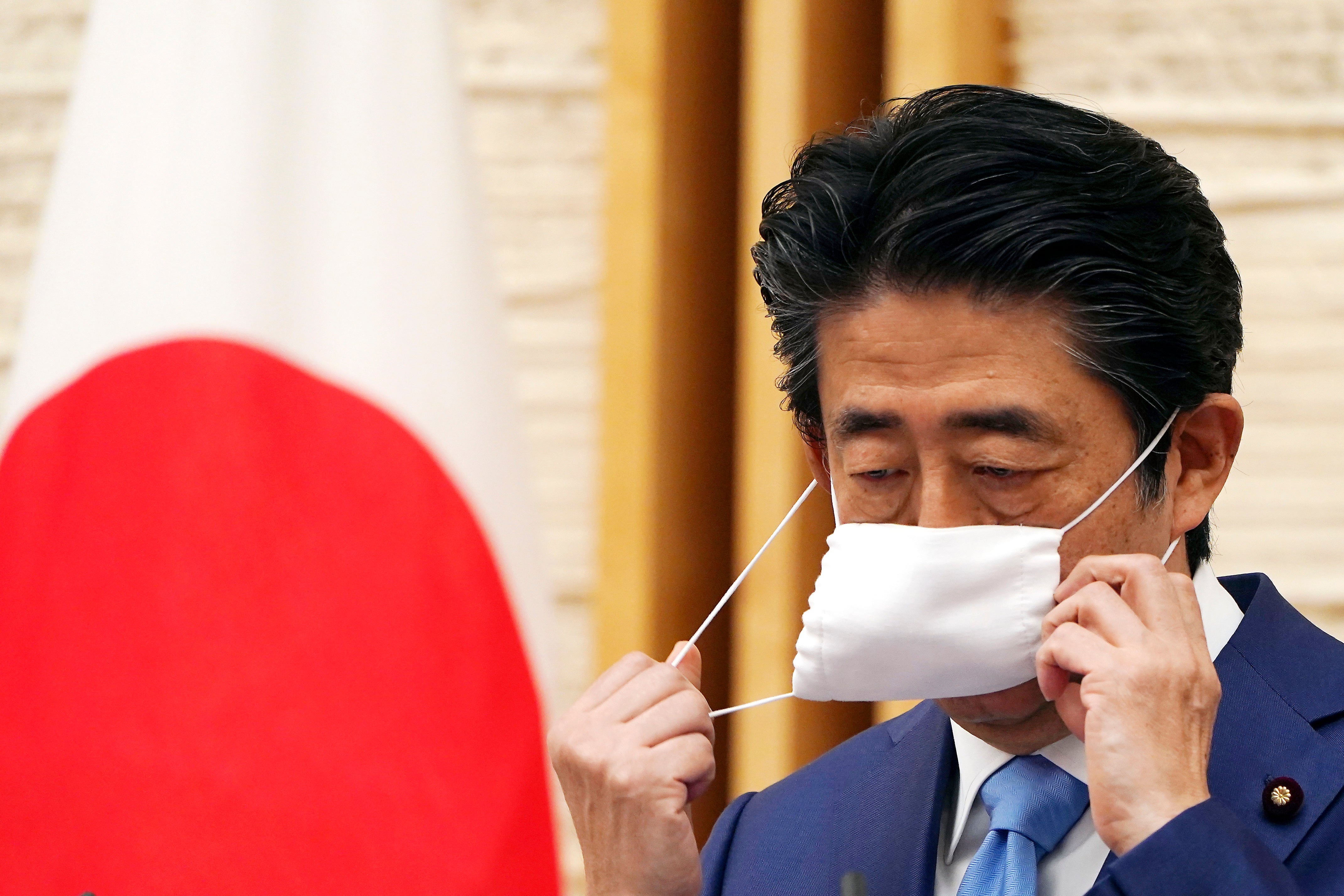Millions of unused cloth masks remain in storage in Japan
Tens of millions of unpopular cloth masks produced as an anti-coronavirus measure under former Japanese Prime Minister Shinzo Abe remain unused and are being kept in a private storage facility at a cost of hundreds of millions of yen (millions of dollars)

Your support helps us to tell the story
From reproductive rights to climate change to Big Tech, The Independent is on the ground when the story is developing. Whether it's investigating the financials of Elon Musk's pro-Trump PAC or producing our latest documentary, 'The A Word', which shines a light on the American women fighting for reproductive rights, we know how important it is to parse out the facts from the messaging.
At such a critical moment in US history, we need reporters on the ground. Your donation allows us to keep sending journalists to speak to both sides of the story.
The Independent is trusted by Americans across the entire political spectrum. And unlike many other quality news outlets, we choose not to lock Americans out of our reporting and analysis with paywalls. We believe quality journalism should be available to everyone, paid for by those who can afford it.
Your support makes all the difference.Tens of millions of unpopular cloth masks produced as an anti-coronavirus measure under former Japanese Prime Minister Shinzo Abe remain unused and are being kept in a private storage facility at a cost of hundreds of millions of yen (millions of dollars), an official acknowledged Wednesday.
About 83 million of the cloth masks, called “Abenomasks,” are in storage, or nearly one-third of the 280 million procured by the government during a severe shortage of surgical masks last year. The government had planned to distribute two to every household.
Few people actually used the masks. Abe modeled one, which barely covered his nose and mouth. People complained that they were too small and arrived too late, when more effective and comfortable surgical masks were back in stock.
The leftovers currently in storage are worth 11.5 billion yen ($97 million) and their storage cost 600 million yen ($5.3 million) between last August and March this year, Deputy Chief Cabinet Secretary Yoshihiko Isozaki said at a regular news conference.
Isozaki said about 130 million were distributed to households but those intended for nursing homes and childcare facilities were delivered in response to requests and a big stockpile remained.
He insisted that the mask campaign was “appropriate at that time” when there was a shortage of surgical masks. He said the government would consider possible use of the leftover masks “as needed.”
The mask campaign was also temporarily suspended due to quality problems. Some had stains, tiny bugs and other contamination in their packaging.